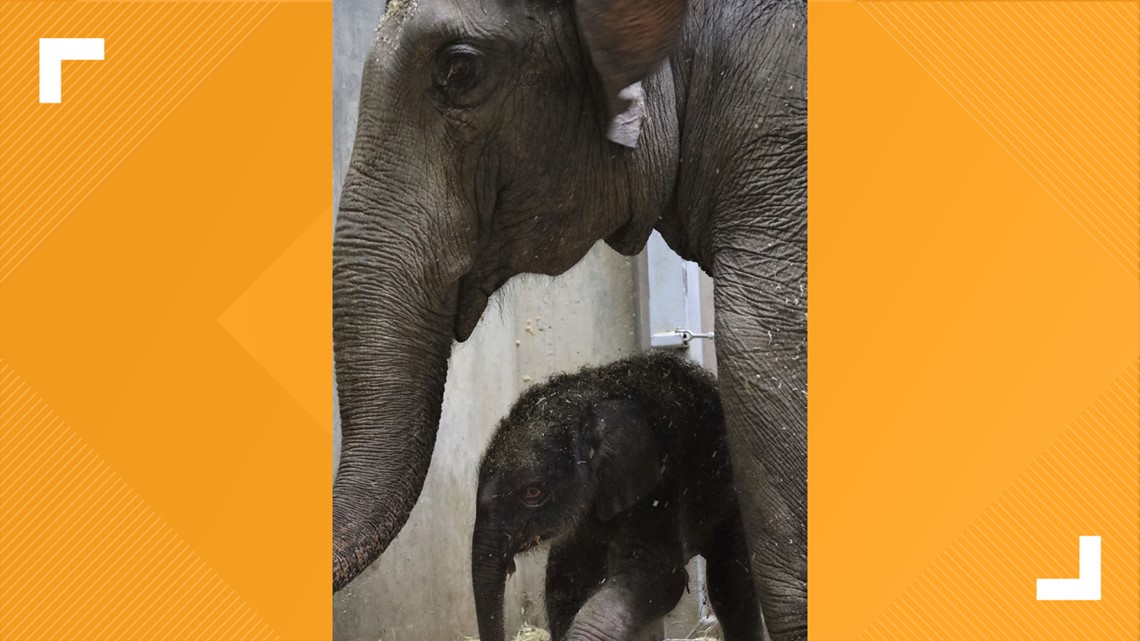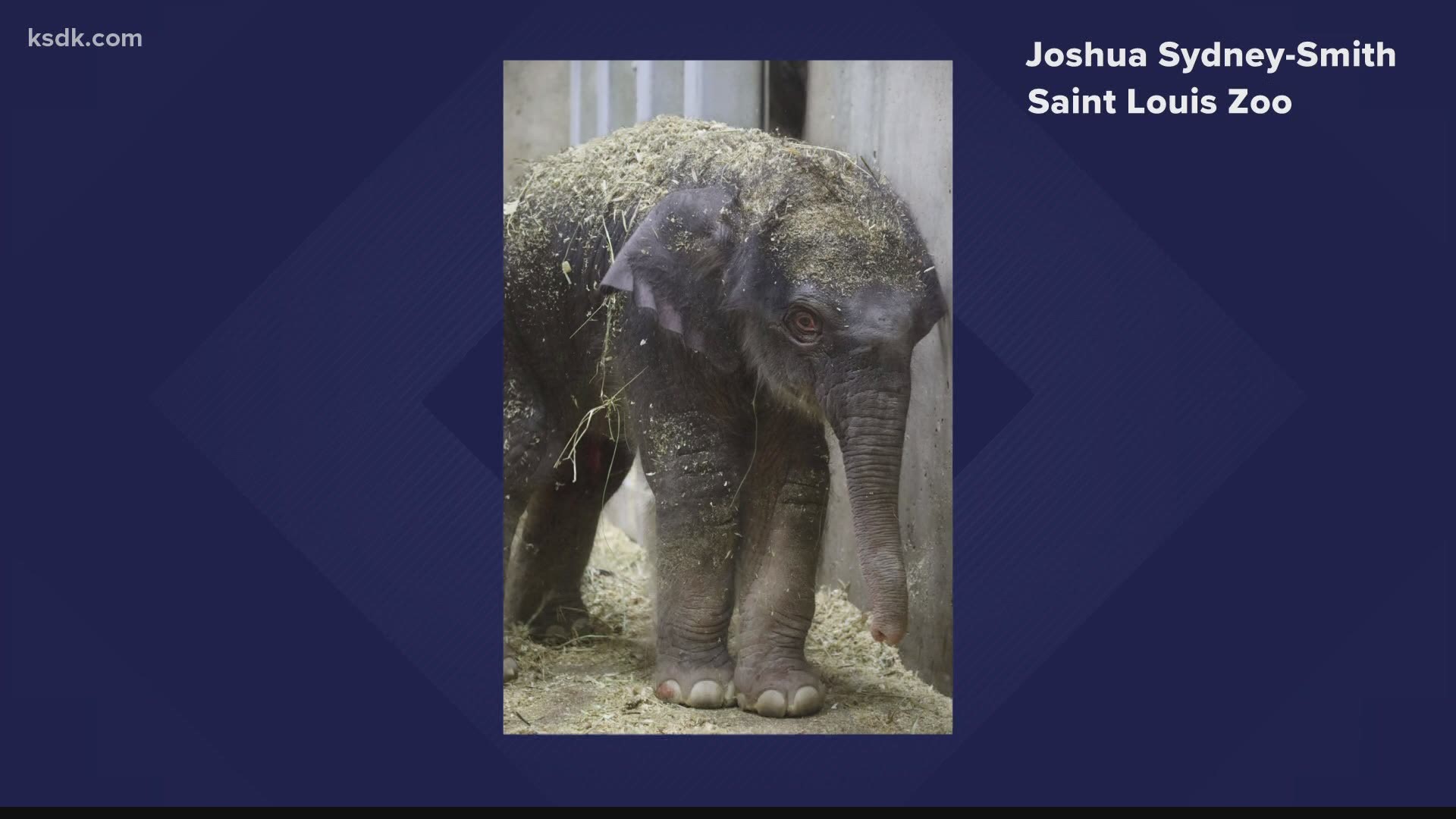ST. LOUIS — Avi, the St. Louis Zoo's Asian elephant calf who has been struggling with health problems since his birth, has died at 27 days old.
He had developmental impairments that limited his ability to feed since his birth, the zoo said. Despite staff's around the clock care, his already compromised health had quickly deteriorated over the past 48 hours.
"The decision to humanely euthanize the calf was made and he passed away peacefully this morning, August 2, 2020," the Zoo announced Sunday.
The Elephant Care Team had awaited Avi's arrival for three years, and he made an immediate impression upon his birth on July 6. His name, chosen by his keepers, meant "the sun and air."
"Everyone here is just devastated right now," said Jeffrey P. Bonner, the zoo's president and CEO. "Our team of professional elephant care experts did everything possible to help improve the calf's health. Unfortunately, in the end, it just wasn't enough as his health complications were too severe."
He was the third calf born to his mother Rani, who stayed near him at every moment as staff provided around-the-clock care. He was the fifth calf sired by Raja, the zoo's 27-year-old bull elephant.


"The animal care team who worked so closely with this calf every day of his short life, and all those who loved him, are understandably grieving," said Luis Padilla, DVM, Vice President of Animal Collections. "Avi will be missed, but never forgotten.
"The community followed Rani's journey from pregnancy to birth and provided support and positive thoughts for the calf and the Elephant Care Team when they learned of the calf's developmental and health impairments. The outpouring of support that we have received from the community has been incredible. I know everyone joins us in our sense of loss, and that helps our team get through these difficult times."
Rani received regular prenatal health checkups during her pregnancy, the zoo said. A full necropsy will be conducted, and the results will not be available for several weeks.
The Asian elephant is listed as an endangered species, with fewer than 35,000 left in the wild, the zoo said.

